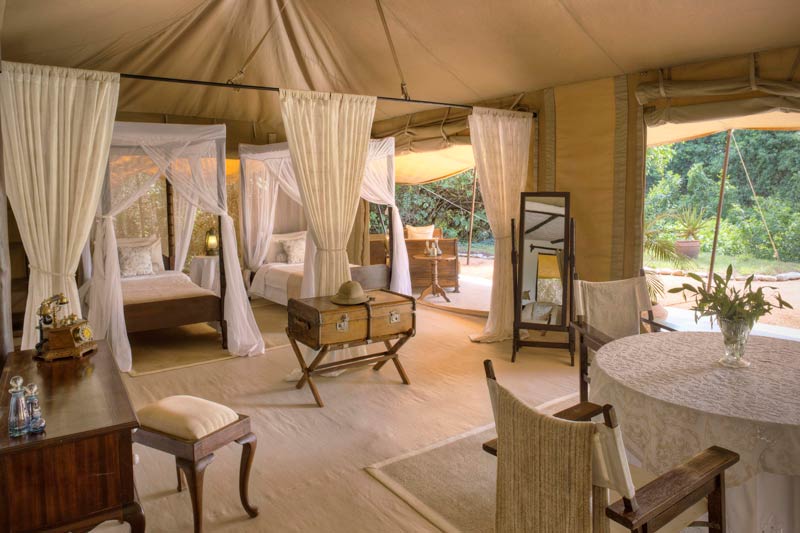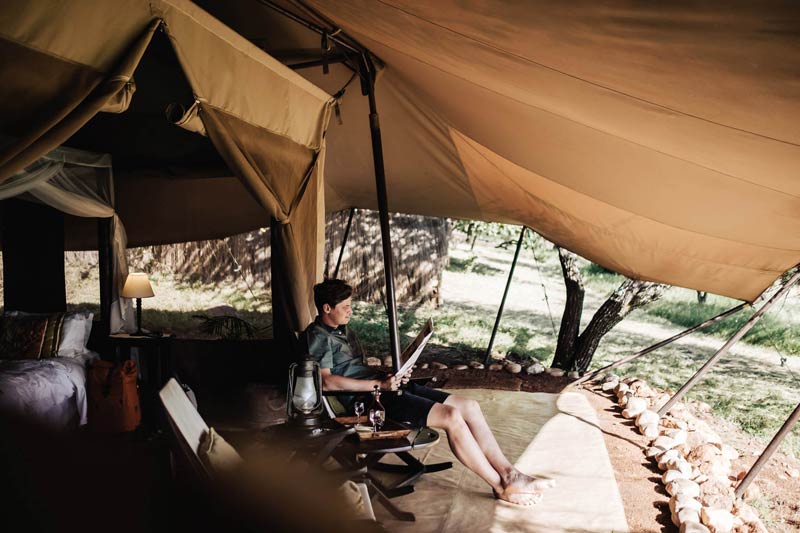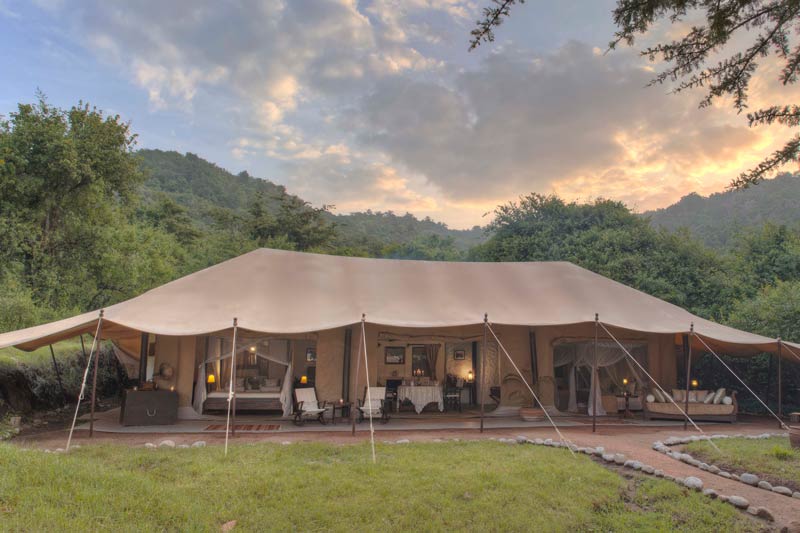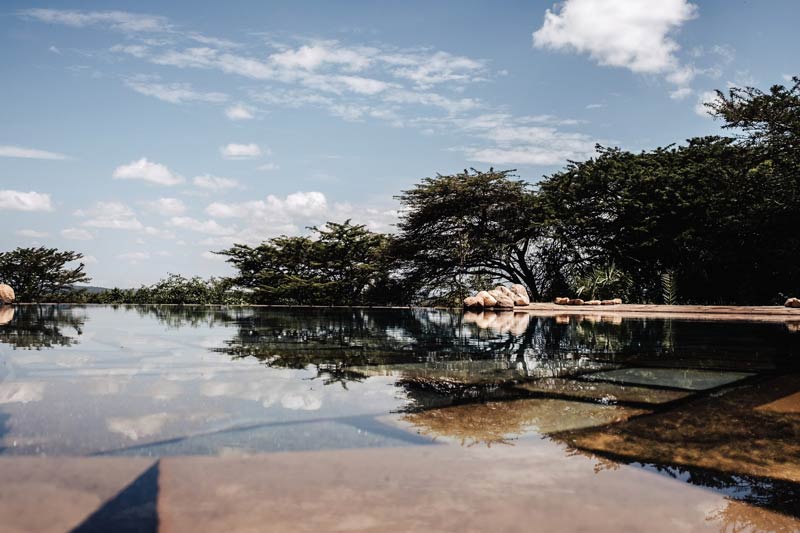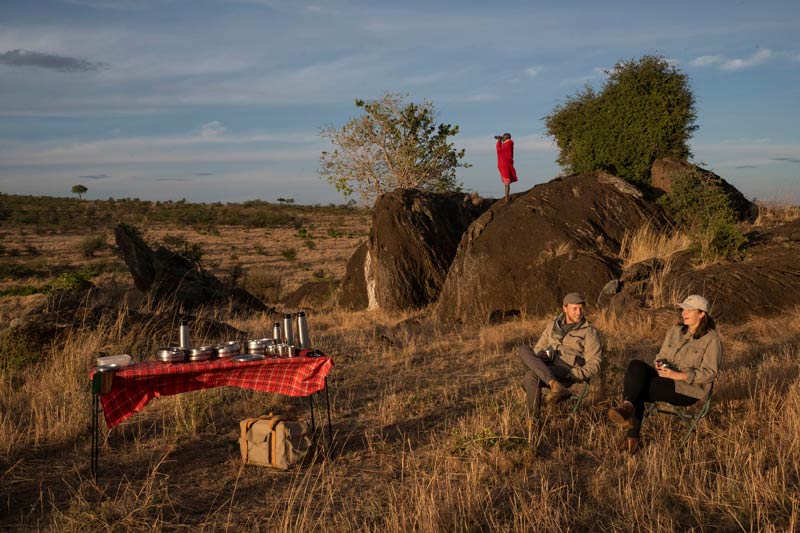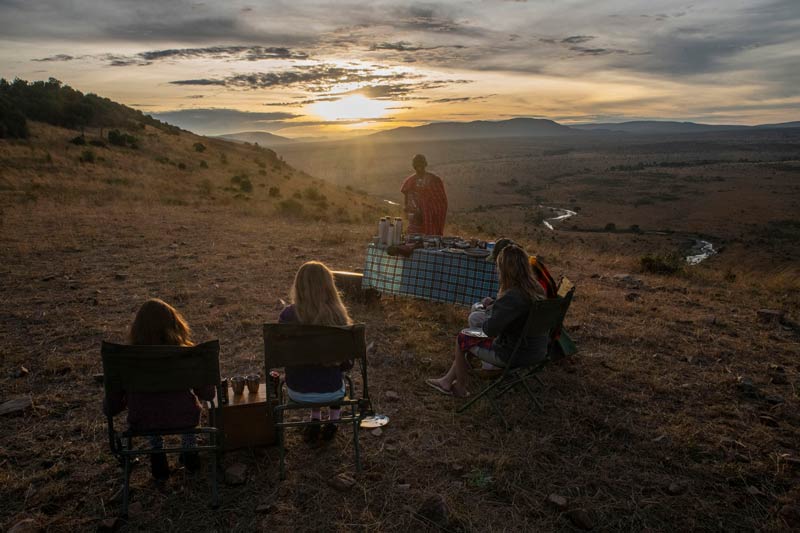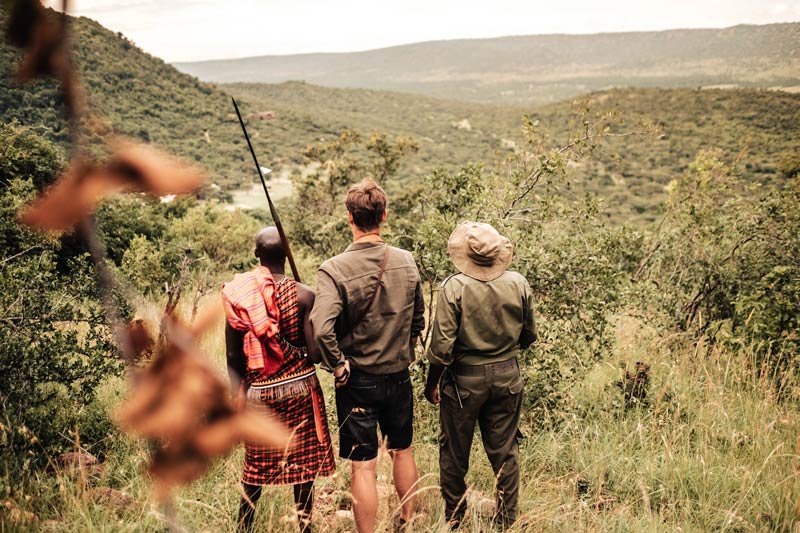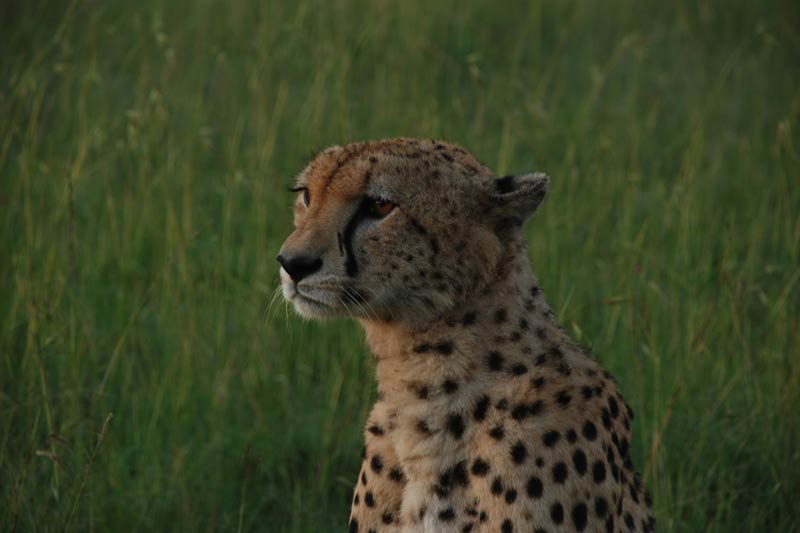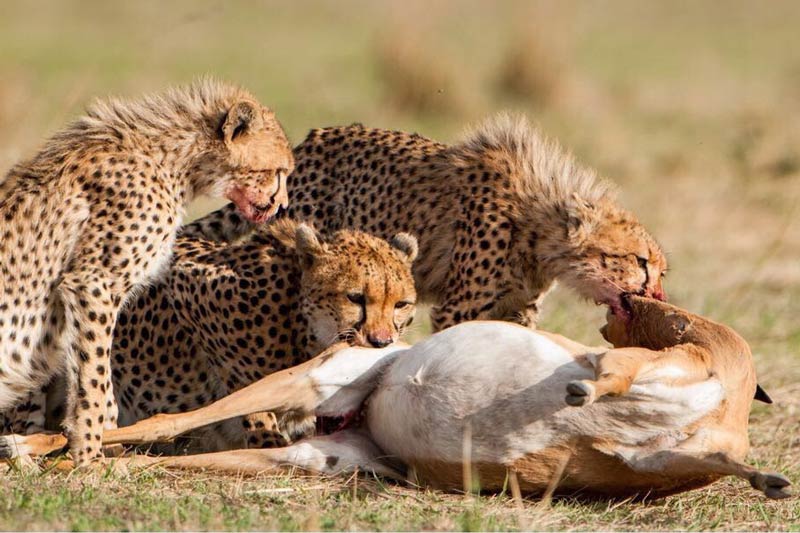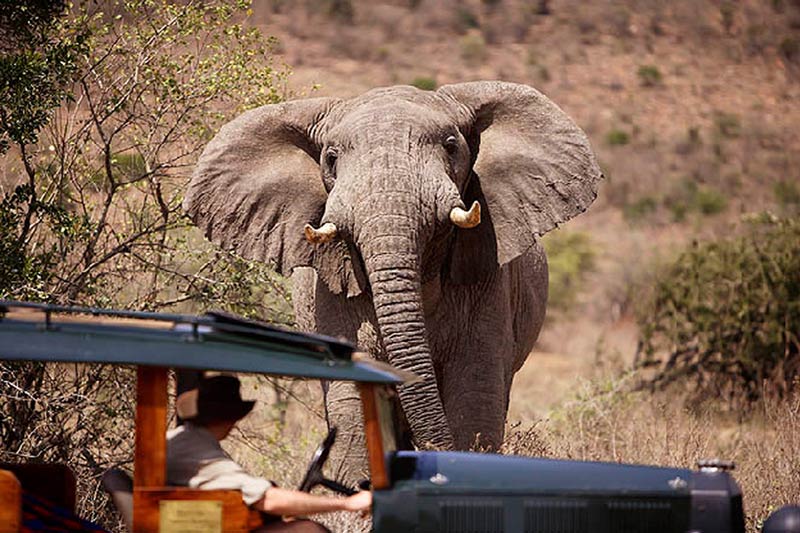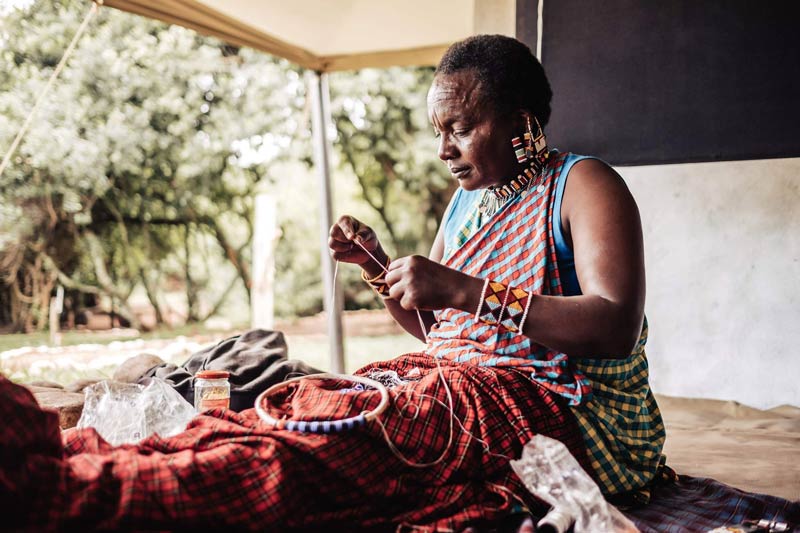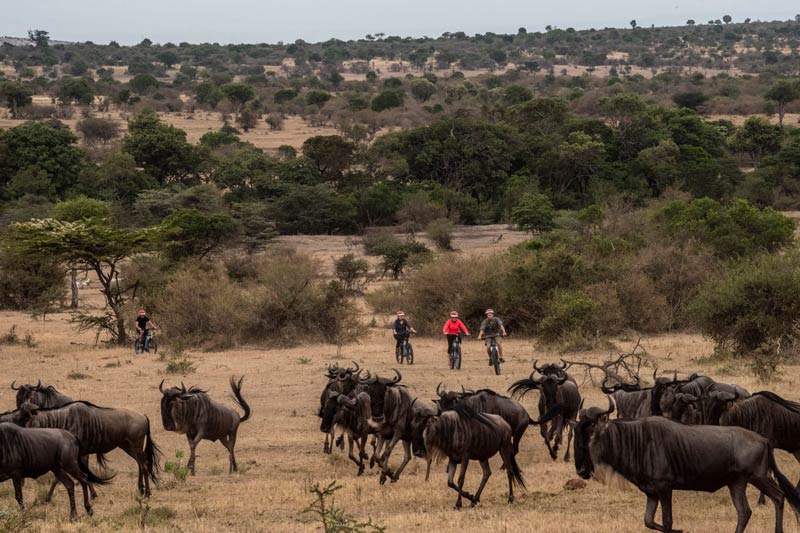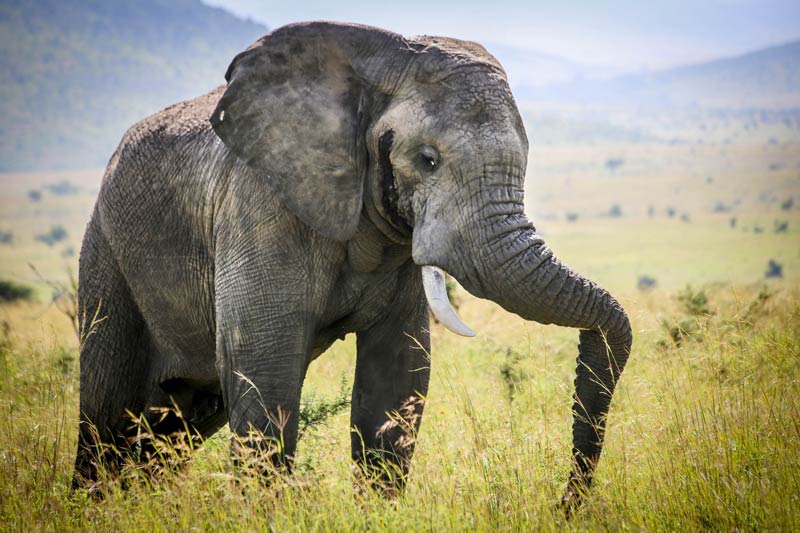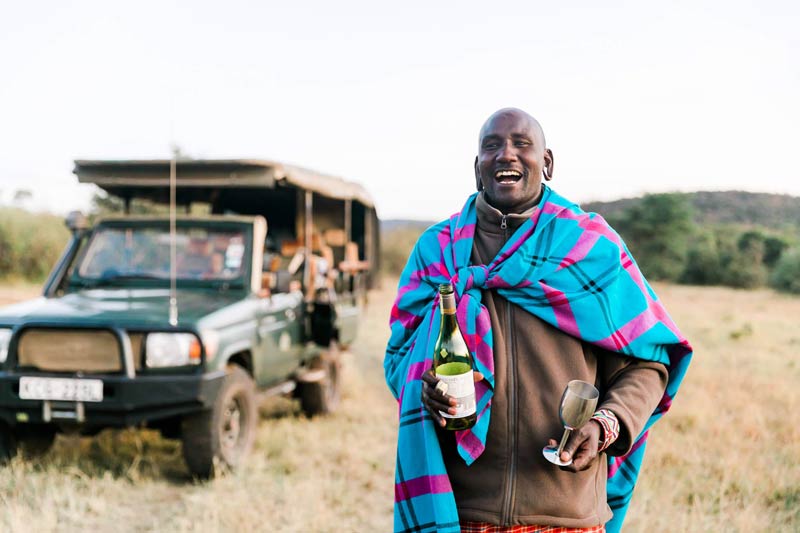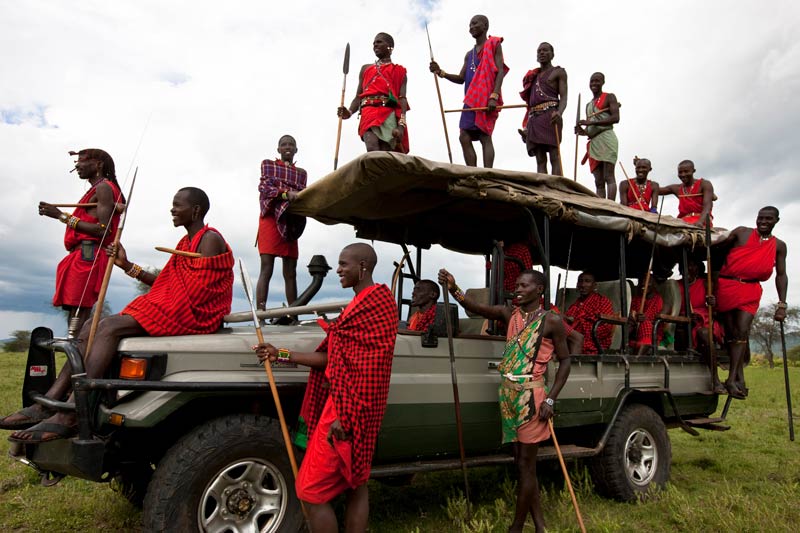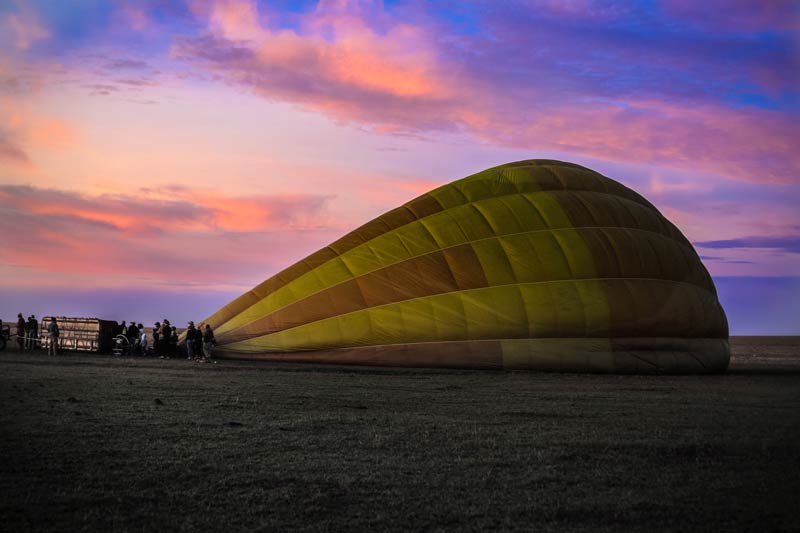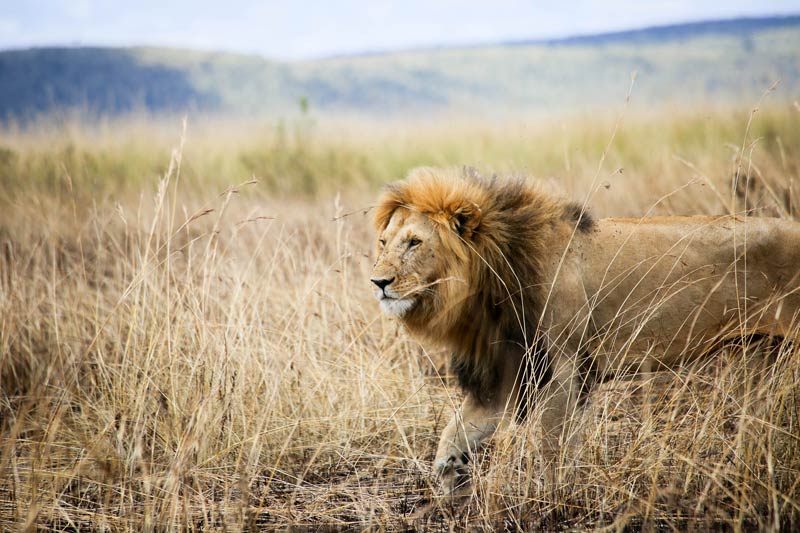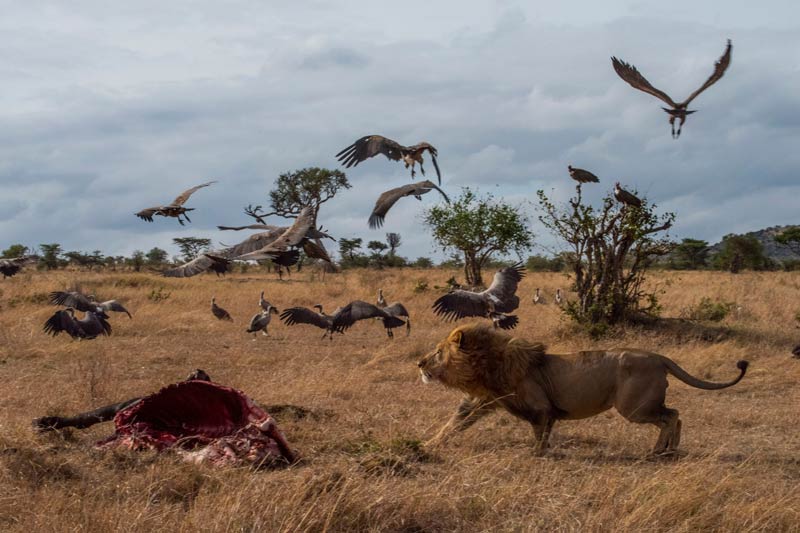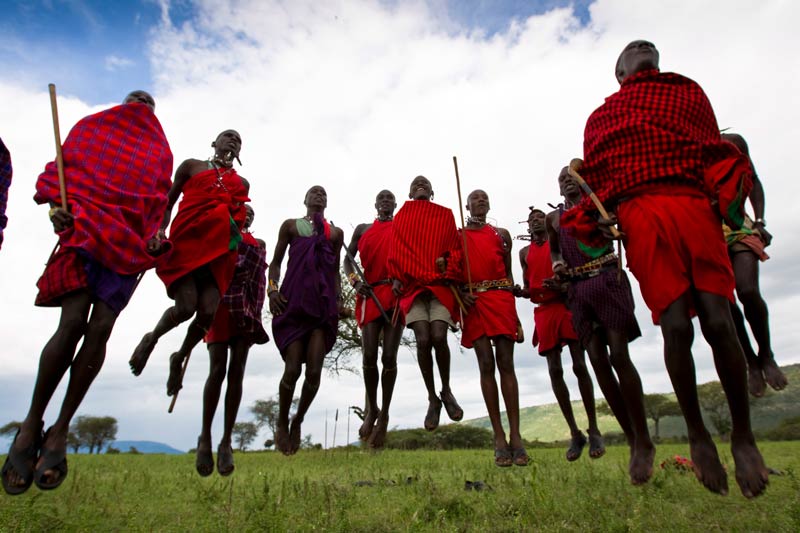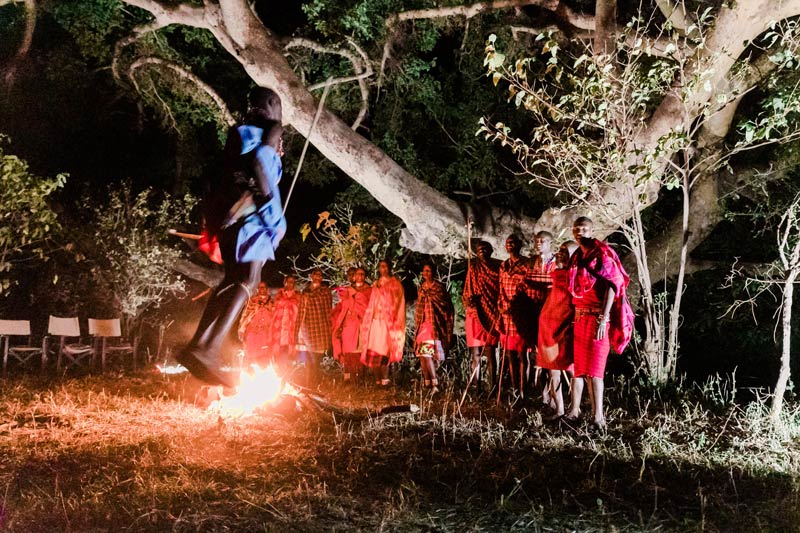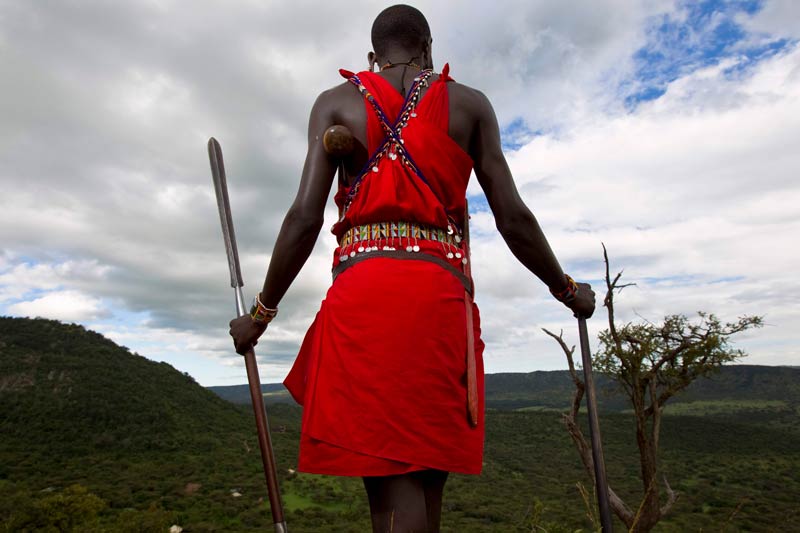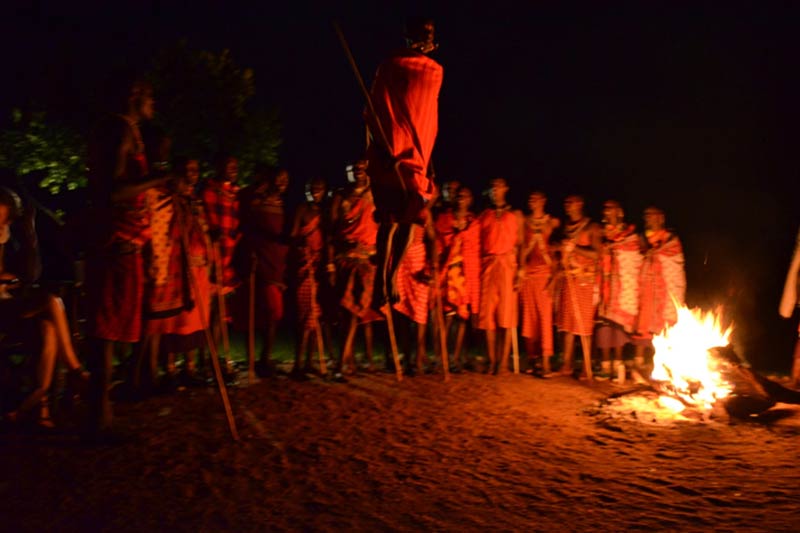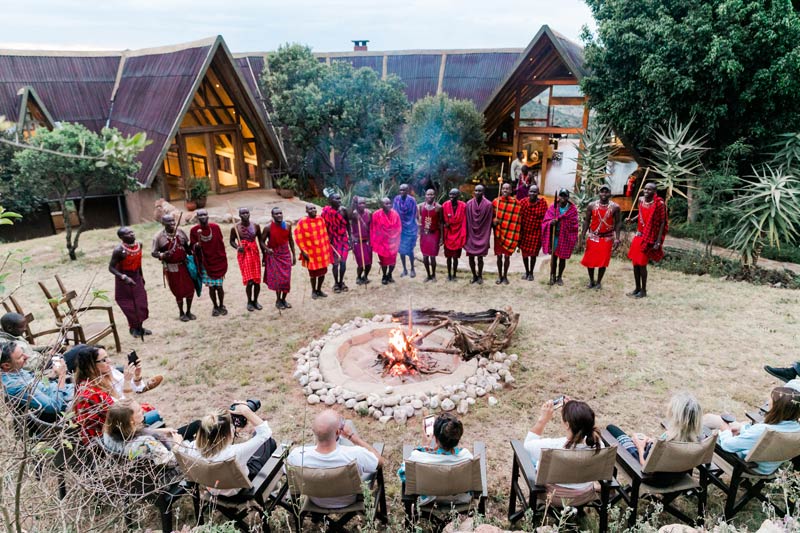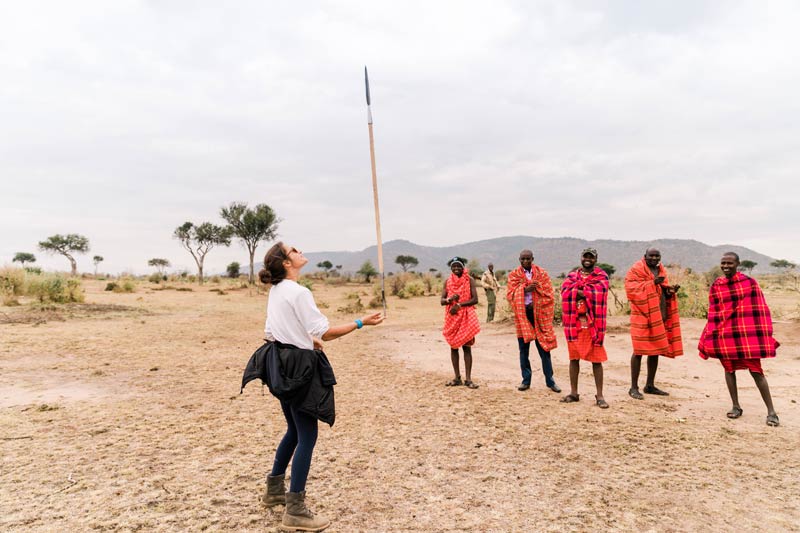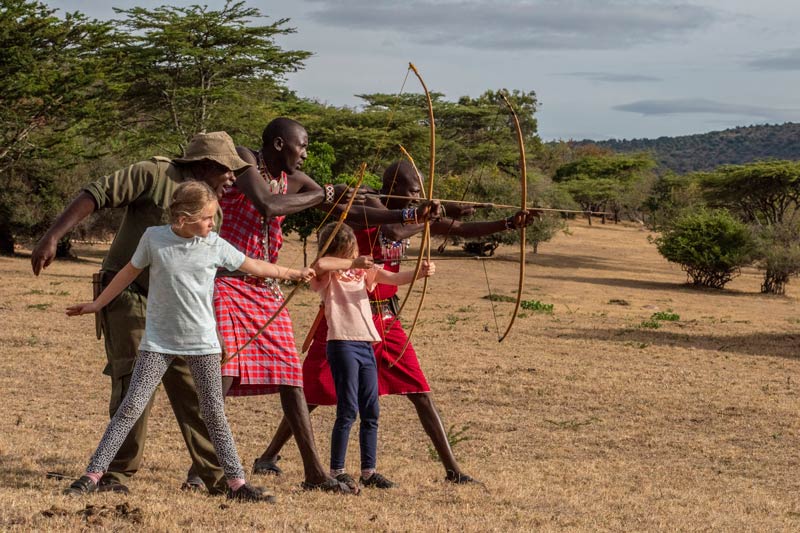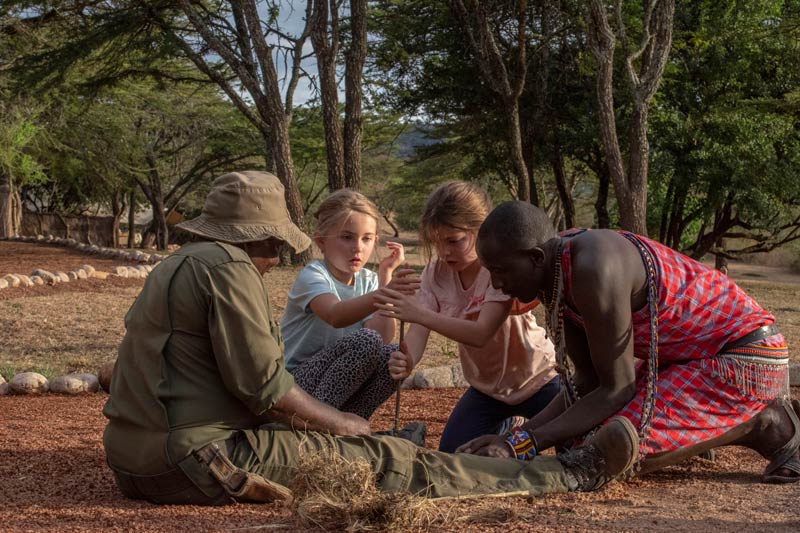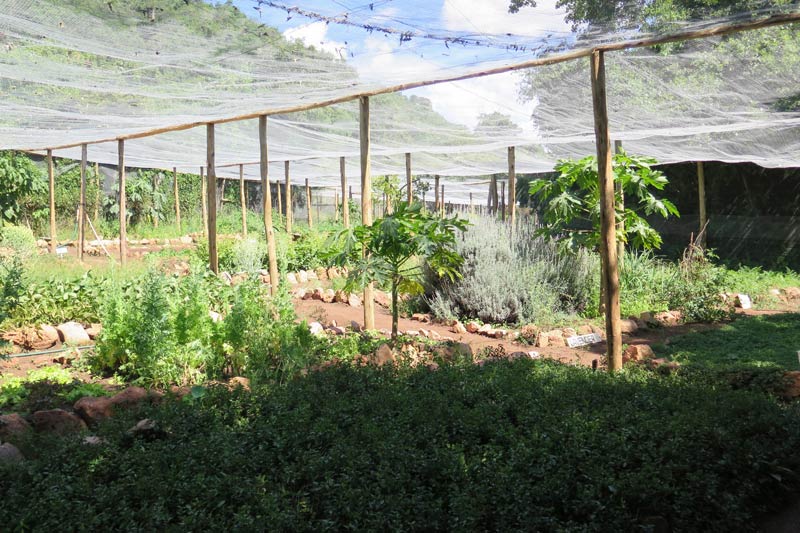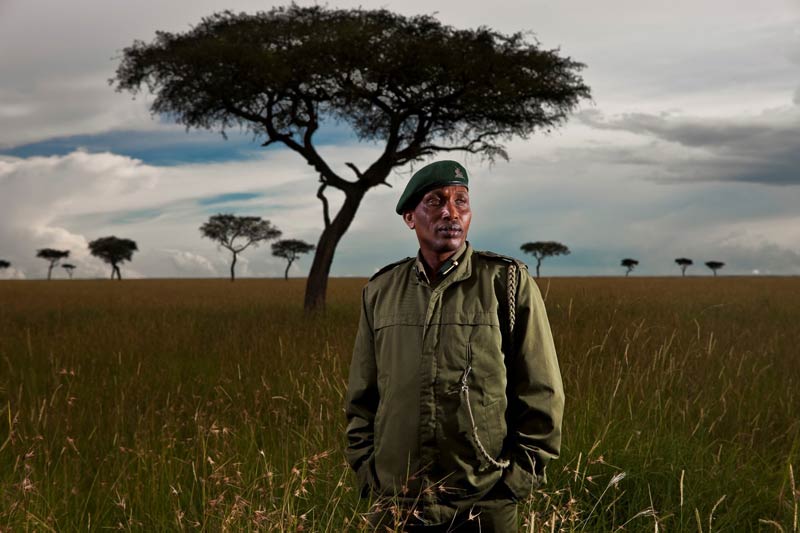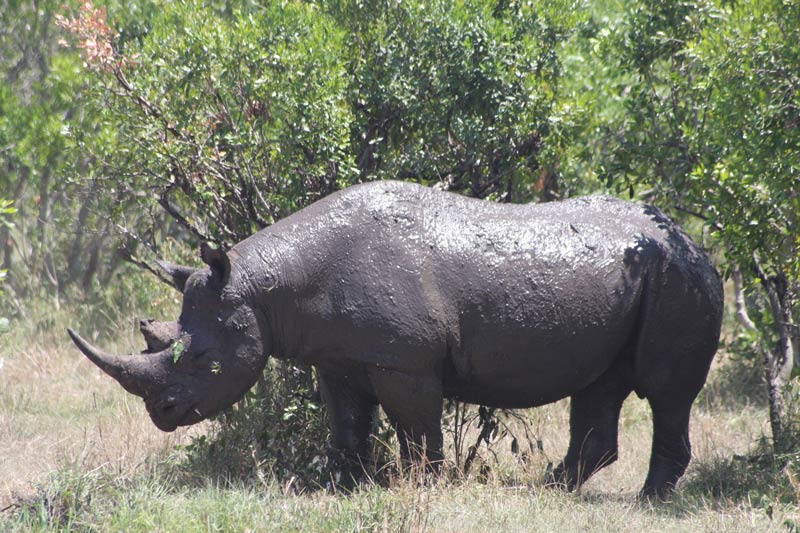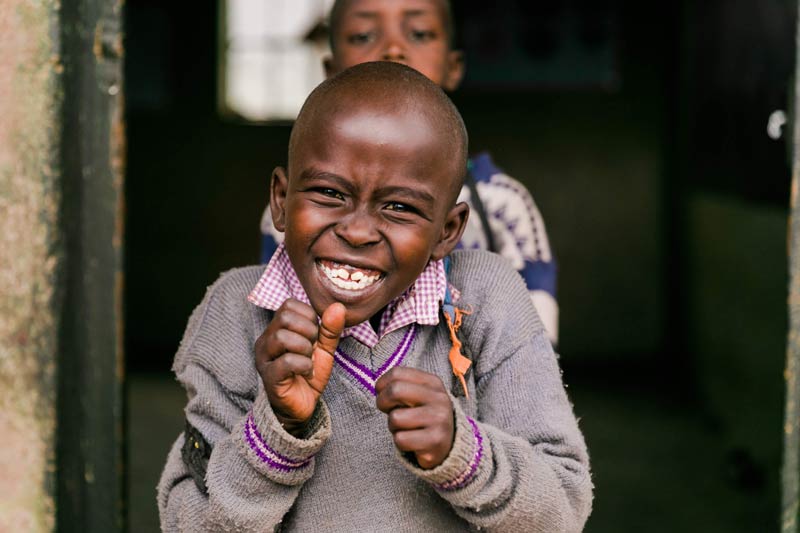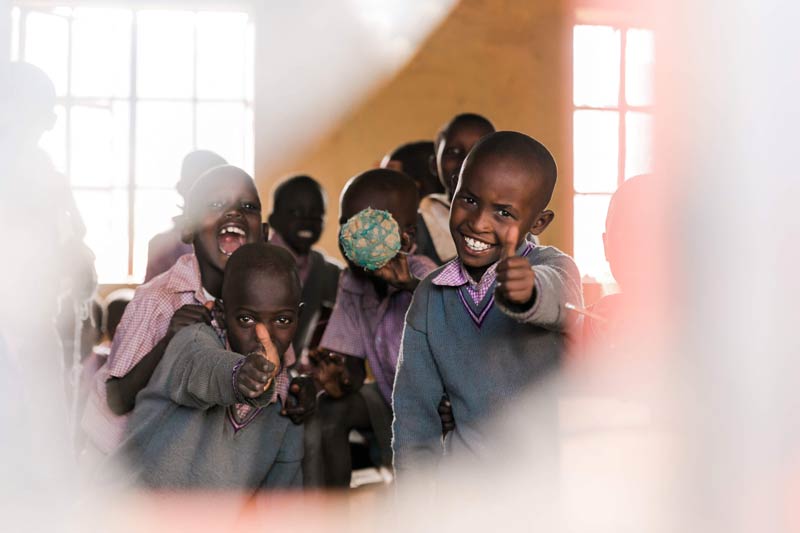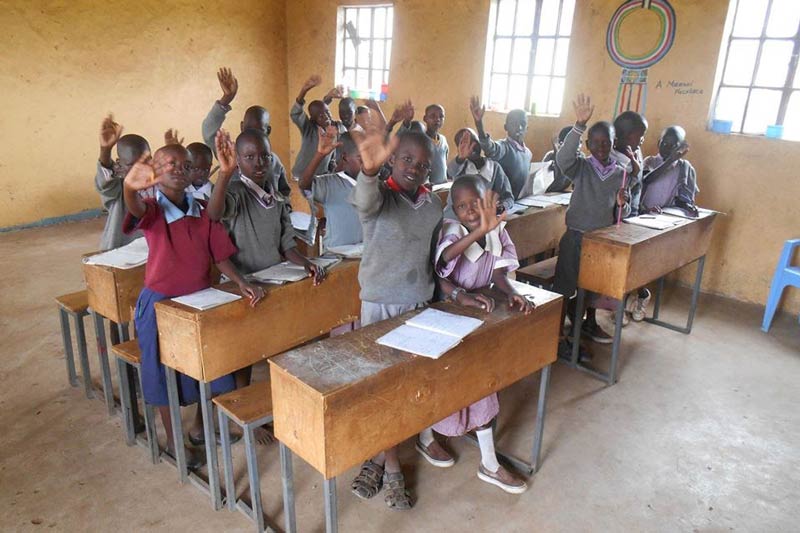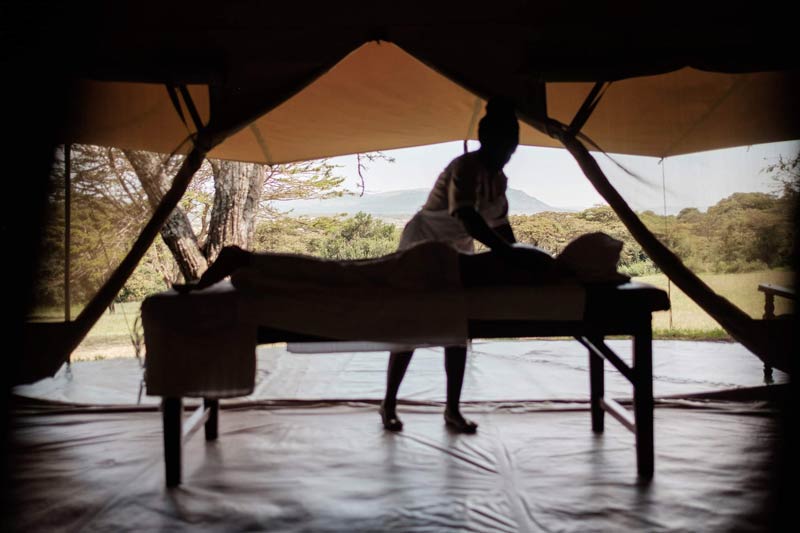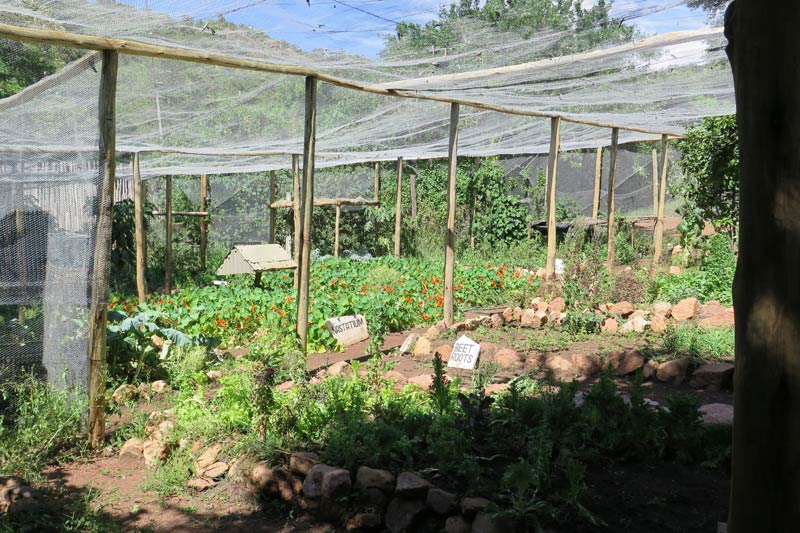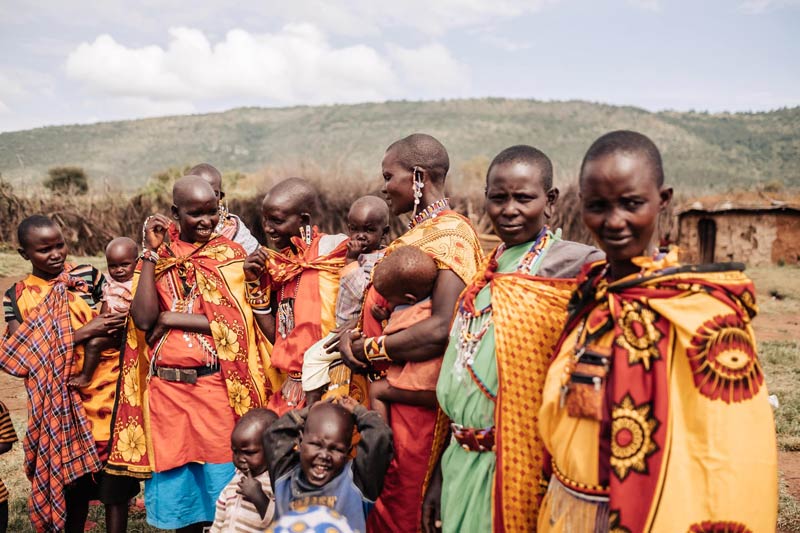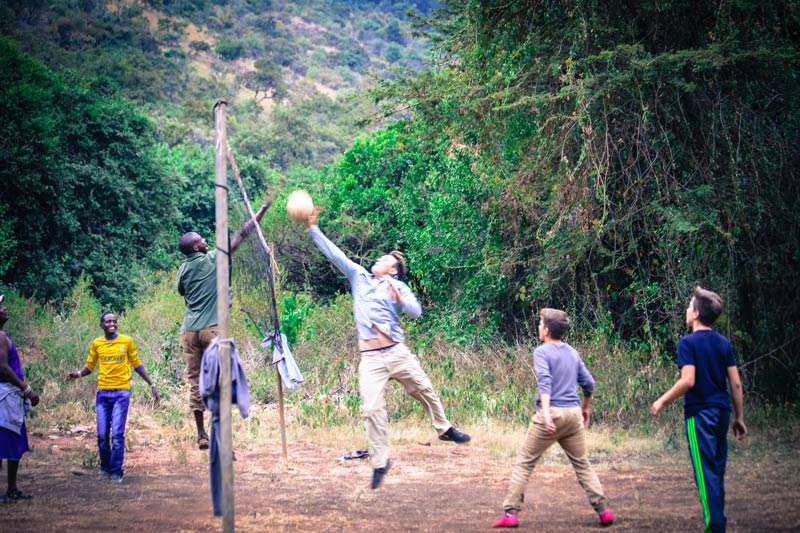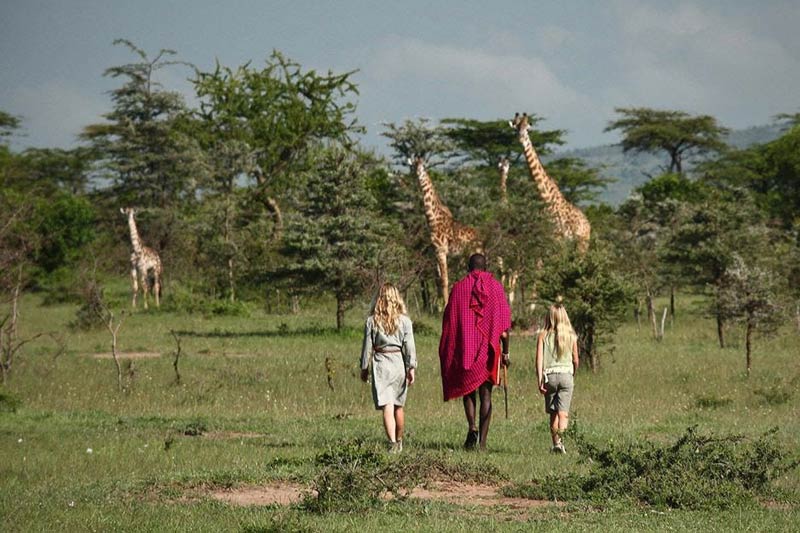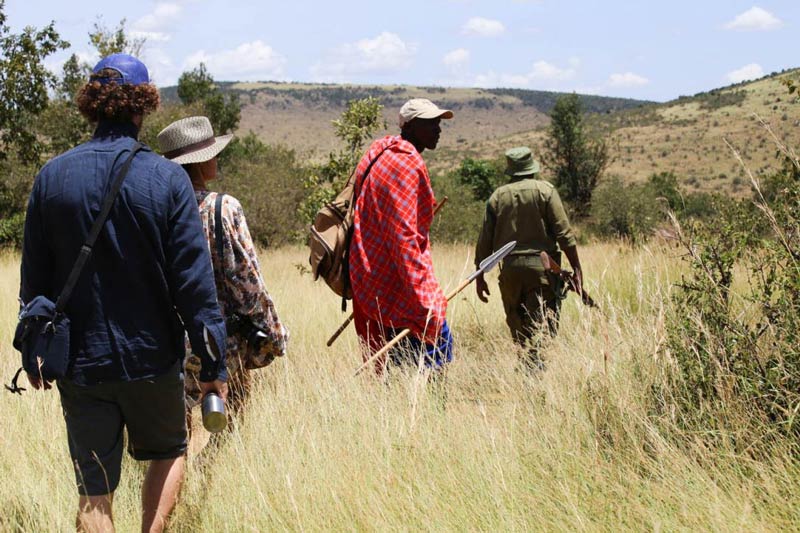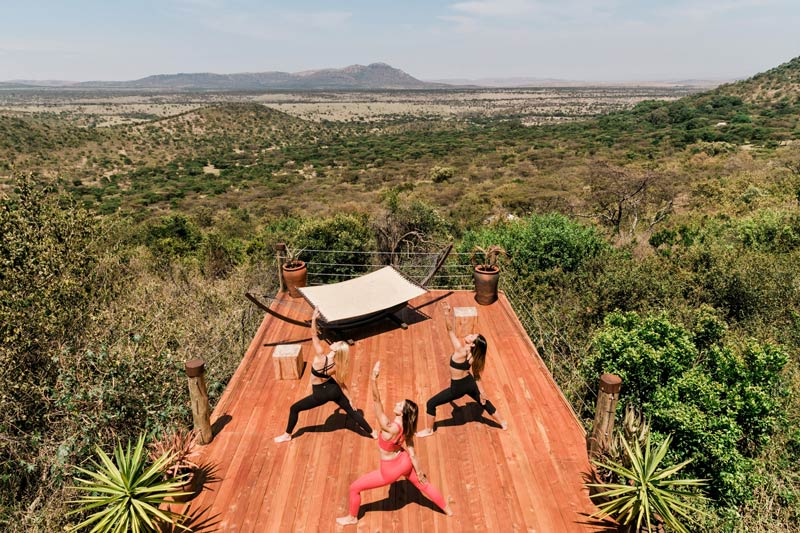Cottar’s 1920s Camp
Cottar’s 1920s Camp is situated on a hillside within a small private concession bordering the south-eastern corner of the famous Masai Mara Reserve.
Cottar’s 1920s is one of the Mara’s most exclusive and upmarket camps, featuring a classic and colonial style as the name suggests. The camp is run by Calvin and Louise Cottar whose family have hosted safaris in Kenya since the colonial days. Attention to detail and personal service are complimented by expert guiding and fine dining. The accommodation is very comfortable, retaining an authentic tented feel and having quite luxurious furnishings, but guests should be aware that they are staying in genuine tents, not luxury suites. The camp offers communal or private dining experiences, depending on circumstance, and is suited to guests looking for quiet sophistication as well as those looking for a more social environment. The flexibility and exclusivity of activities on their private concession is a bonus, though game concentrations do vary and most extended game drives take place within the official Mara Reserve, which is great for game viewing but can at times be less exclusive than the private conservancies. The family tents and nearby large swimming pool are really brilliant for families looking for an upmarket Mara experience!
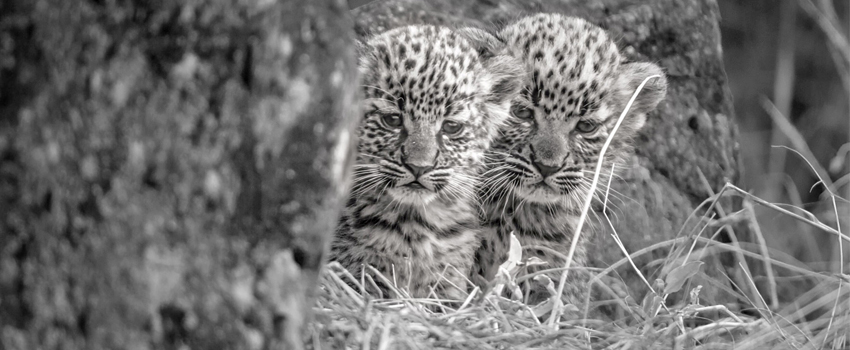
ACCOMMODATION
Accommodation at the main camp consists of 11 tents (five double/twin, four family and two honeymoon tents) which are positioned in a row stretching away from the central mess tent along the hillside. Each is surrounded by a…
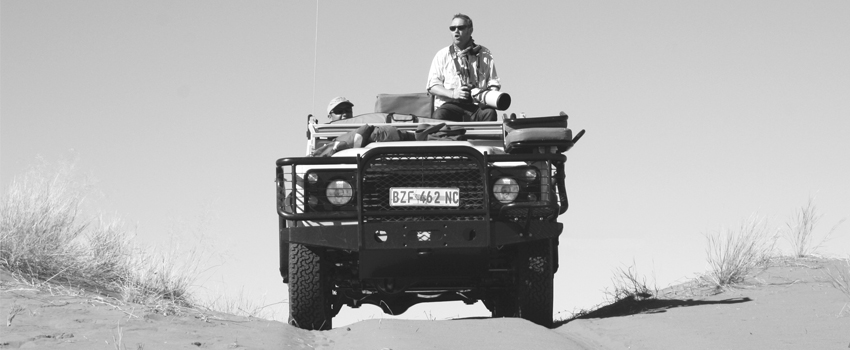
AREAS & ACTIVITIES
The Masai Mara ecosystem is one of the best game viewing areas in Africa and is especially good for viewing the big cats. Elephants, buffalo, hippo, crocodiles, giraffe, zebra, lion, leopard, cheetah, spotted hyaena, impala…
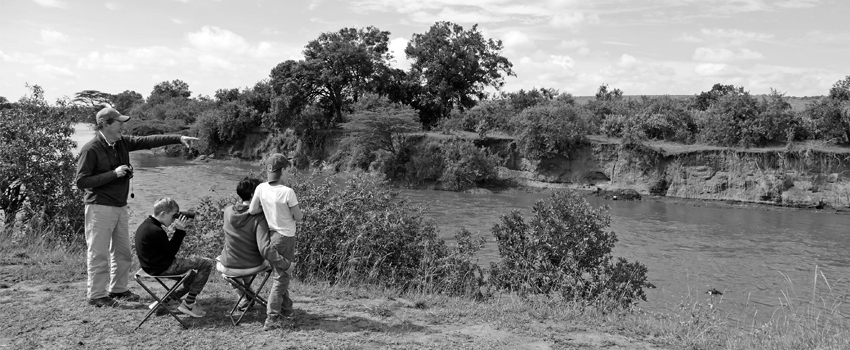
Families
Cottar’s 1920s Camp family suites offer some of the best family accommodation in the Masai Mara. These open plan suites allow families with young children to stay ‘under one roof’ but are also large enough to accommodate…
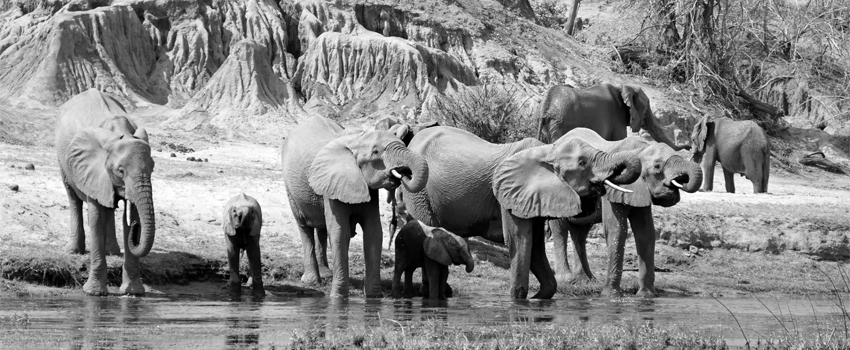
Conservation & community
Cottar’s Wildlife Conservation Trust (CWCT) was set up to support conservation, community, culture and commerce on the Maasai owned Olderkesi Conservancy. CWCT has provided medical services, installed radio…
| Location | Olderkesi Conservancy, Masai Mara |
| Access | Scheduled flight into Keekorok (1h30) or Charter flight into Cottars (15mins) |
| Open | All year |
| Pricing | £££££ |
| Camp Style | Luxury tented camp |
| Focus | Big game / Open plains experience |
| Children | No age restriction |
| Activities | Game drives (day and night) / Guided walks / Cultural visits / Maasai warrior school / E-bike rides / River swimming / Fishing |
| Vehicles | Open |
| Maximum Guests on Vehicle | 6 |
| Private Vehicle Options | Yes |
| Off-road Driving | Yes |
| Number of Rooms | 11 tents (including 2 honeymoon tents and 4 family tented suites) and Cottar’s Bush Villa |
| Family Accommodation | 4 two bedroomed family tented suites / Five bedroomed Cottar’s Bush Villa |
| Bathroom | Flush toilet / Plumbed basin / Plumbed shower |
| Power for charging | Communal / In room |
| Lighting | Solar |
| Hairdryer | Provided in central area |
| Heating/Cooling | Standing fans on request |
| Room Safe | Yes |
| Laundry Service | Complimentary |
| Communication in room | Radio |
| Wi-Fi | In room |
| Mobile Reception | No (there is a signal at Cottar’s Bush Villa) |
| Swimming | Communal pool / Pool at Cottar’s Bush Villa |
| Wellness | Spa |
| Dining Style | Communal (private on request) |
| Drinks Included | House drinks |
| Credit Cards | Visa and Mastercard |
| NOTE: | There is a cat in camp |


